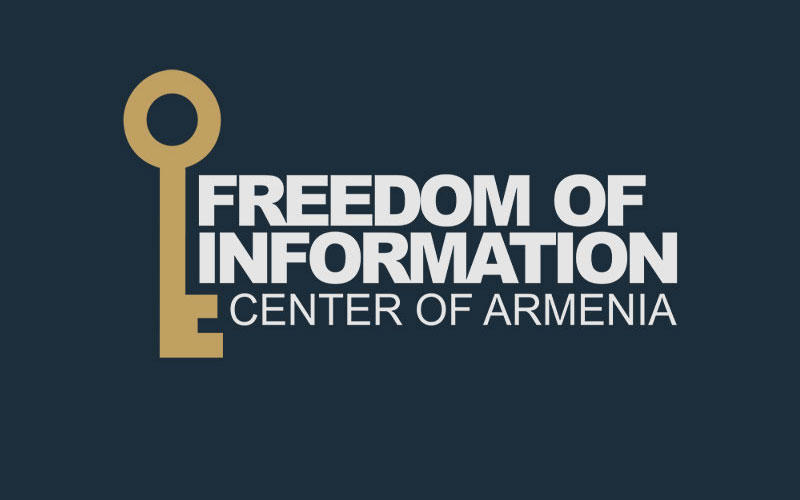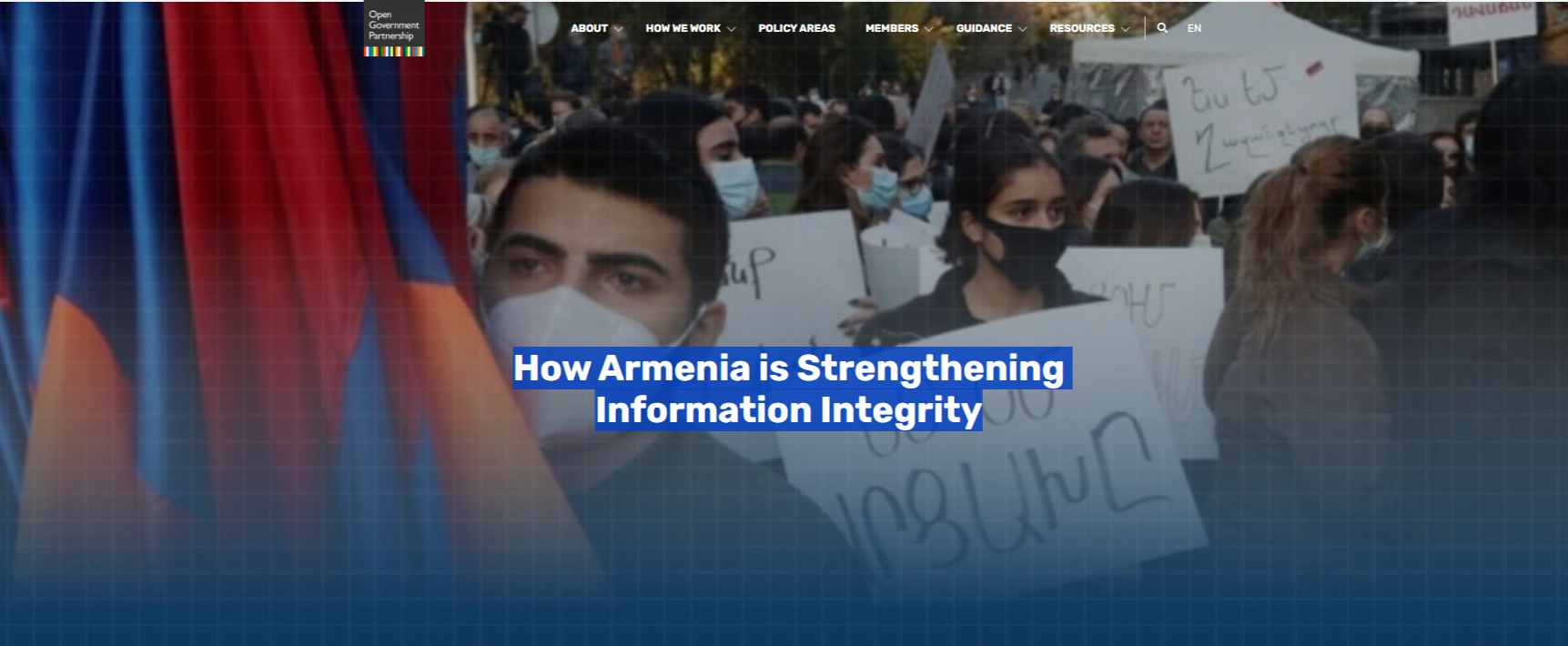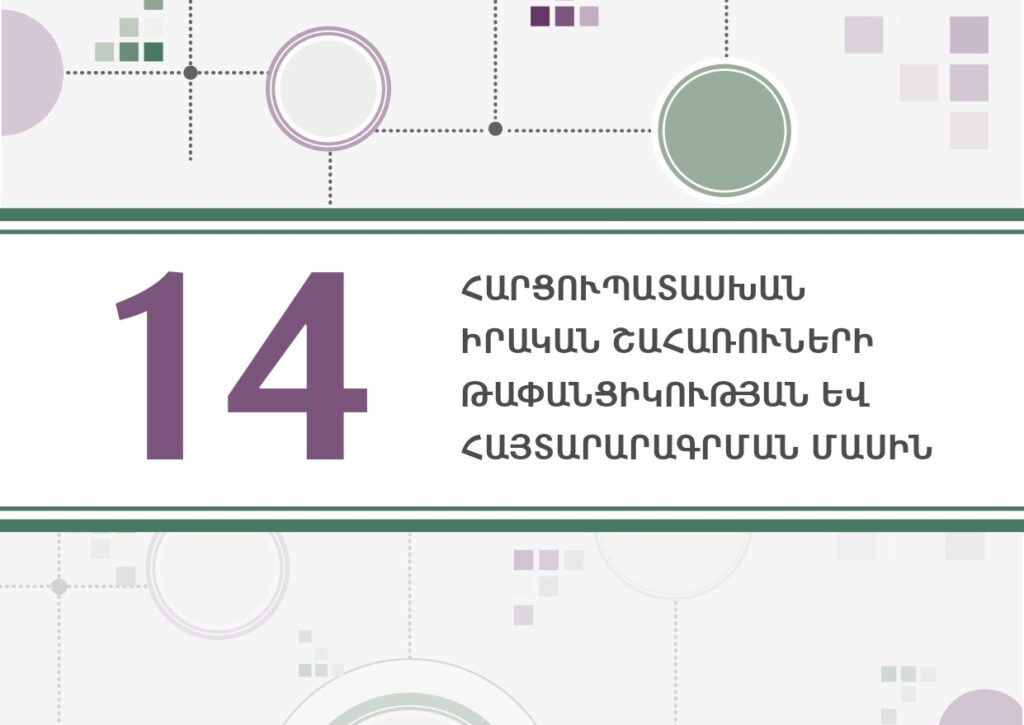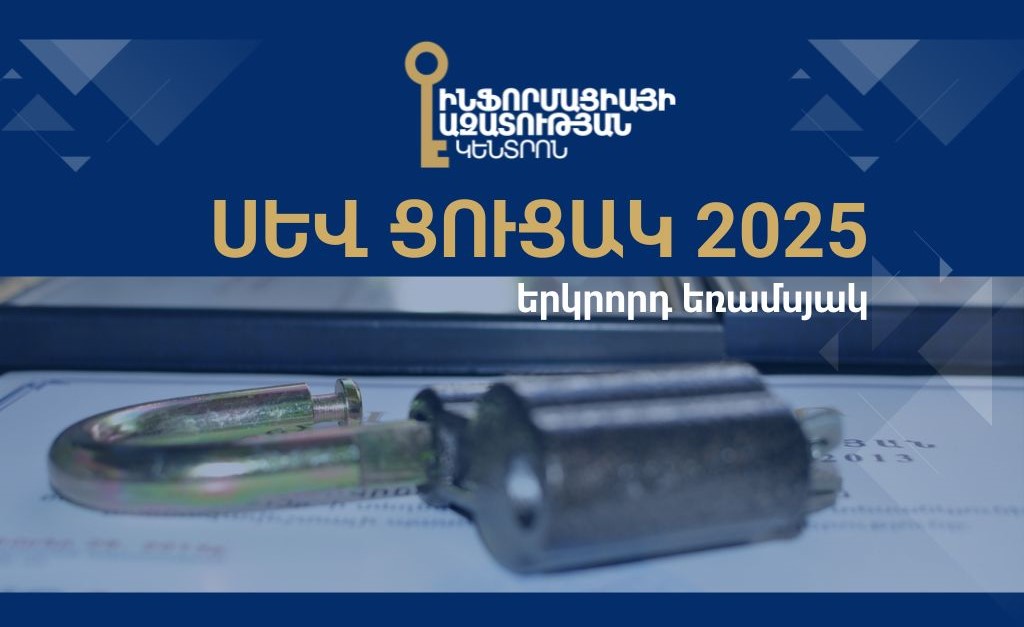Nune Arevshatyan
Bulletin 12
Bulletin 12
Close structures? As much as you like… journalists have a big list of close structures – “Armentel”, Public Prosecutor’s Office, Police, tax inspectorate, customs service, quality inspectorate, court services and sometimes separate departments of municipalities. Many people say that in order to get an answer to any question in those structures, one must have very strong nerves.
In Shirak region it is difficult to get information from state governance and local governance structures and organizations holding monopoly. The number and content of the complaints to mass media resources is enough to conclude that the law on “Freedom of Information” does not help people in getting the information they need. It will not be wrong to say that in Shirak region the law does not function at all. In our practice there have even been cases when an official learned about the law for the first time from a journalist. Those officials are usually the so called opponents of information, whom journalists remind about their obligation to provide information. Besides journalists, citizens do not use their information right either. Some people do not know about the law, others do not belive in its usefulness.
The complicated process of appartments distribution which has been under way in Gyumri city for already a year, still creates conflicts between the distribution commitee and citizens. The committee stubbornly does not inform citizens why they were not given an appartment. In Gyumri there have been cases when the regional municipality simply refused to accept letters of complaint from citizens. According to the residents of 5a Tigran Mets street, seeing them the people working at the complaints department just “ran away”. We can bring a large number of exmaples when a citizen, overloaded with problems and unable to get answers from local state structures, applies to higher organs – ministers, the Prime Minster and the President. However, those complaints are again directed to the same local structure.
Local governance structures often conceal their replies to the inquiries of citizens from state governance structures. Recently, residents of 69 Shirakatsi st. of Gyumri applied to “Aravot” newspaper complaining of the municplaity’s town-planning department which conceals the letter from the Town-Planning Ministry. According to the residents their building is not only located in the middle of a field but is also half-constructed and does not have doors and windows. In order to ask for the government’s support the residents had applied to the Town-Planing Ministry. They are sure that the appeal was directed to the town-planning department of Gyumri municipality which does not find it necessary to reply in some way.
Sometimes local structures conceal information of no significant importance, such as for example is the damaged building included in the “Disaster zone reconstruction” project or not ? If simple questions like this are not answered, how can an official answer why he has deprived a 77 year old lonely pensioner of the right to receive allowance?
Speaking about Shirak region it is better to speak about information restrictions. Many journalists assert that they have difficulties in getting information too. Our interviews with journalist have shown that the law on “Freedom of Information” does not help in overcoming the obstacles set by officials. It should be mentioned that the status of the mass medium makes no difference. Most of the journalists are displeased with the answer of officials who say that their structure is just a branch of some republican structure and they are not authorized to provide this or that information. This is one of the most popular ways of refusals to provide information. However, there are even more displeasing ways, for example “laying the responsibility on others”. In cases like this suffer not only journalists but also citizens. Journalists from “Tsayg” and “Shirak” TV companies say that sometimes this impacts negatively on the work of TV channels, especially when the information is necessary for the news program. Tensity in relations between the town hall and the regional municipality is also a widespread reason to avoid providing information. “I don’t know, let the other structure give the answer”. On the other hand, experiences journalists make use of such conflicts for discovering the truth.
There are also some primitive methods of avoiding information provision, such as being on vacation, illness, business, being in a bad mood and so on. Beginner journalists face problems in getting information more often. According to novice journalists working for different TV channel, getting information is more difficult, because officials refuse to speak saying thay they cannot speak to the camera.
Journalists working for newspapers express dissatisfaction too, because they need even more detailed information. If in the region of Shirak it is difficult for journalists who simply establish facts, then it is far more difficult for those who reveal abuse and violations. There are cases when after the publication of undesirable facts certain officials do everything to hinder the work of the given mass medium.
As the reporter of “Haykakan jamanak” daily says, after the publication of criminal cases instituted against the mayor of Gyumri and other officials from the municiplaity, he was not allowed to take part in the meetings of the elder’s council. The majority of experience journalists are sure that harmless information can be easily received thanks to good contacts and relations. However, going deep into harmful facts the journalist may spoil relations with the official.











